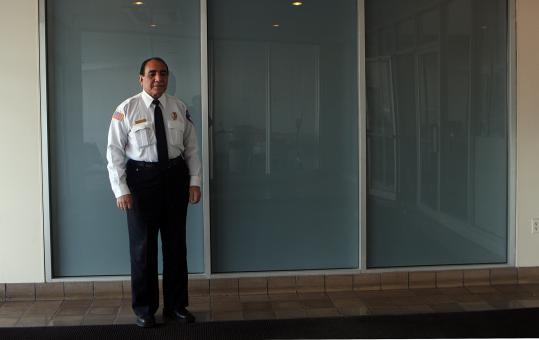| Many Immigrants Find it Difficult to Rebuild Careers in U.S. | |
|
|
|
 |
| Want to send this page or a link to a friend? Click on mail at the top of this window. |
More Special Reports |
| Posted January 26, 2009 |
| Lost in Transition | ||||
|
|
||||
|
||||
| THE COMMANDER - Ghulan Farooq was used to giving orders as a two-star general in the Afghaniistan Army. He fled the Taliban in 2000, and now he works as a security guard in Somerville. Initially, in 2001, U.S. officials sought his advice on the war in Afghanistan, but they have since faded away. | ||||
|
|
| By MARIA SACCHETTI |
| Globe Staff |
| Wehaitians.com, the scholarly journal of democracy and human rights |
| More from wehaitians.com |